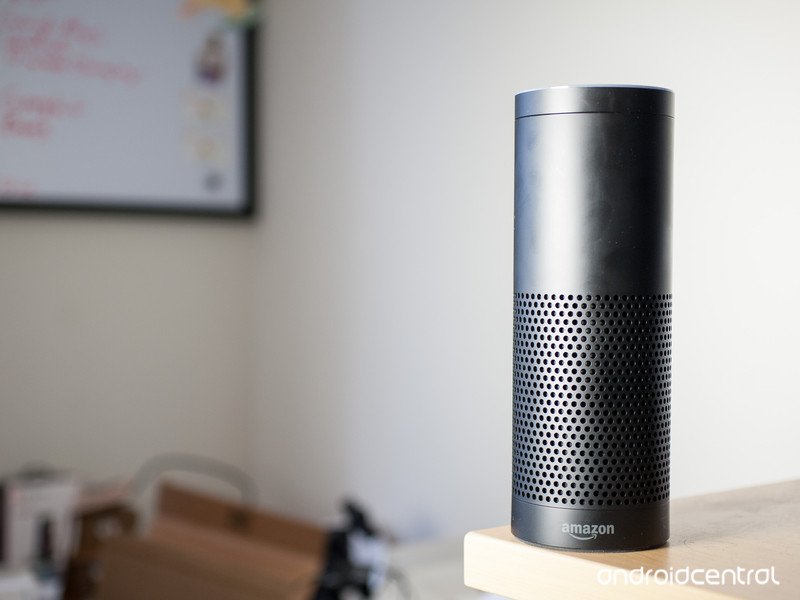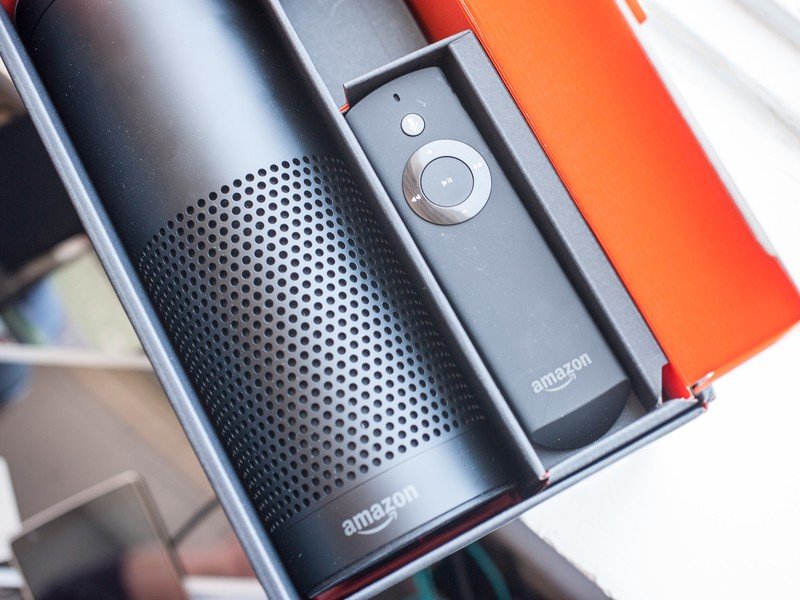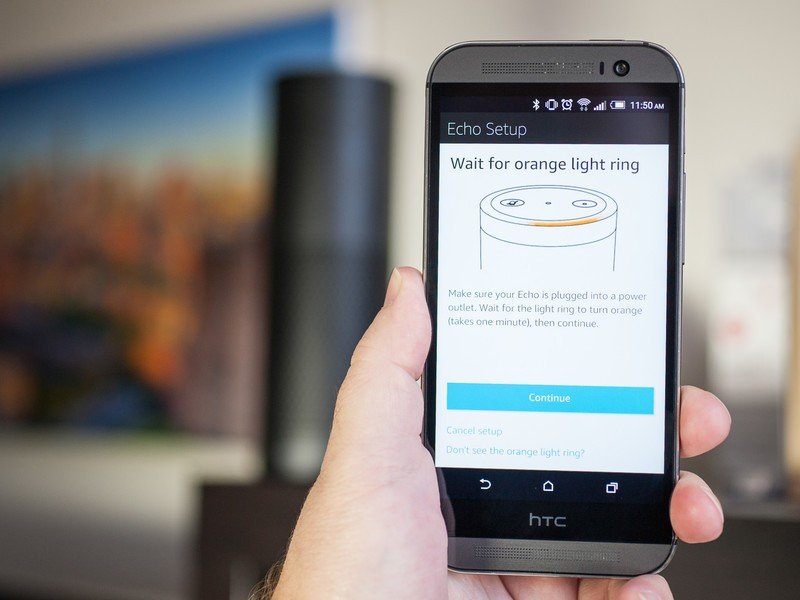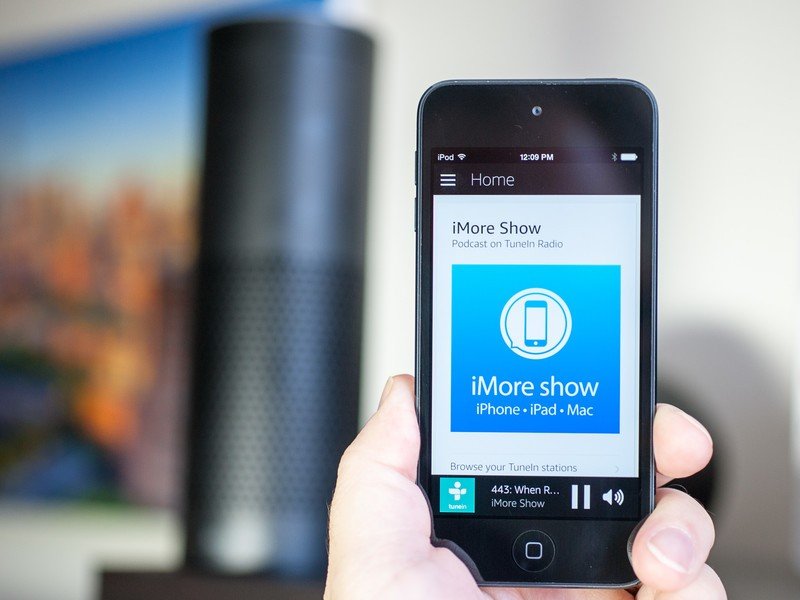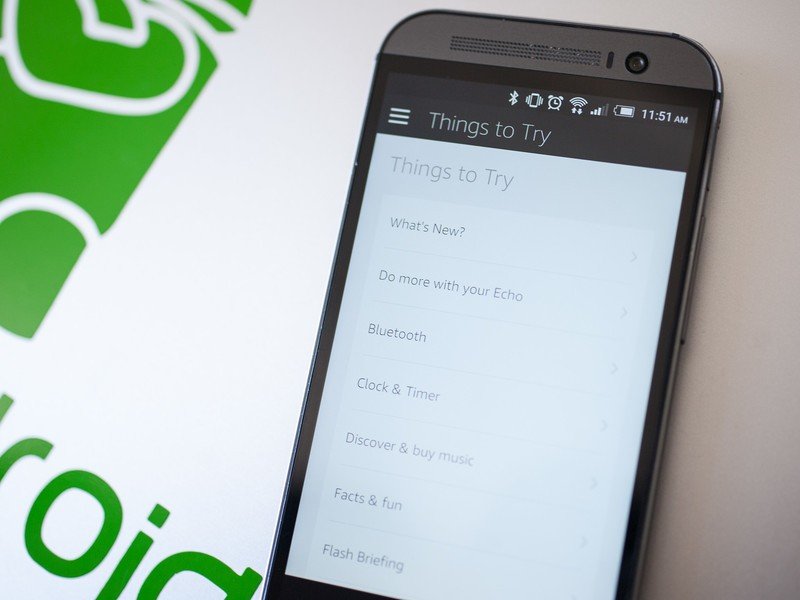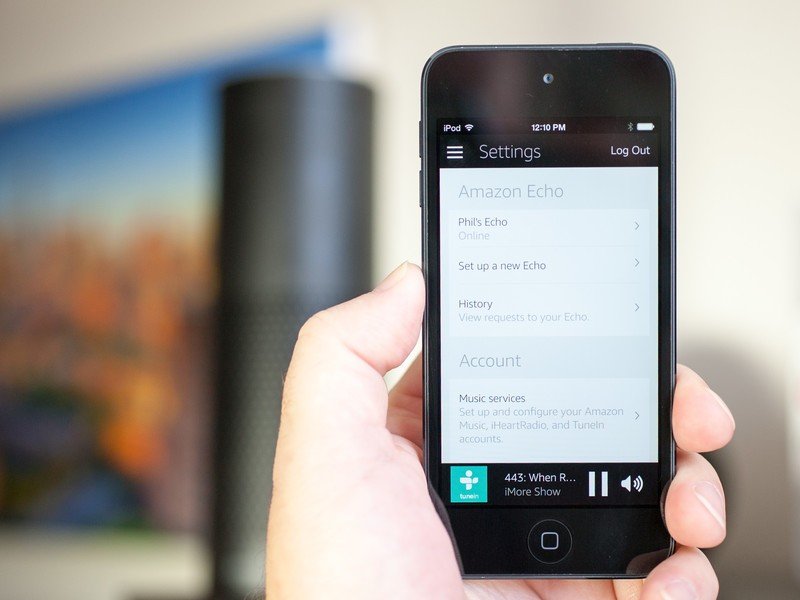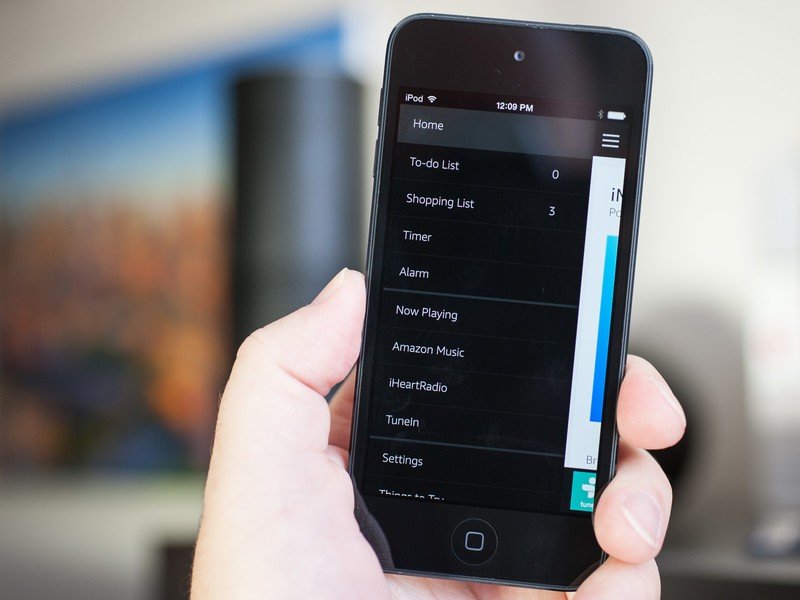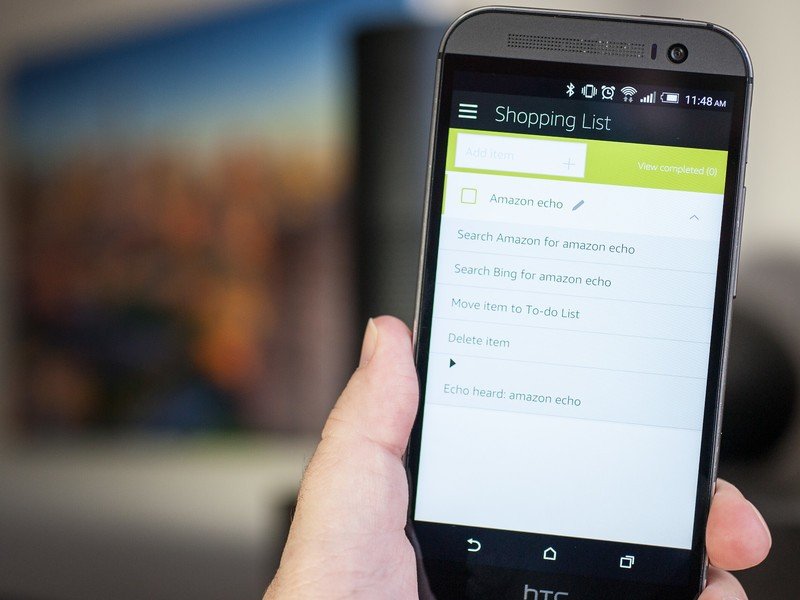Google brought us, well, Google Now. But excellent as it is, you're taking to a machine. Apple personified things with Siri. And now Amazon has Alexa in its Amazon Echo Bluetooth speaker. Why? Oh, why not. On one hand you've got a decent speaker that ties into Amazon music. And lets you make shopping lists for later. On Amazon, of course.
But really that's just the tip of the iceberg with Alexa. And it's a bit of an odd product, not available for general purchase. You register your interest with Amazon, finally are given the opportunity to buy, and then wait a few weeks until it ships. Maybe available will expand, maybe it won't. It took about a month for ours to arrive, a few minutes to get it set up, and not much longer to see that this thing has some serious potential. The question is whether that potential leads to anything on down the road.
And if it does, the likes of Google and Apple are going to find themselves with even more of a competitor in Amazon.
It's not often that one gets to refer to Star Trek IV: The Voyage Home in a piece like this, but if you'll recall that alien probe that was checking in on the whales (stick with me here), you'll get the idea of the Echo. It's a black cylinder about 9 inches high and 3 inches in diameter, with a bit of sort-of predictable grille on the bottom half and a ring LED on the top edge. There's a button for shutting off the otherwise always-listening microphones (of which there are seven), and an "action" button for manually telling it to do something, or to initiate the setup process.
There's nothing inherently special about the hardware — it's the brains that matter.
There's an optional remote control included should you find yourself a little too far for the Echo to hear you, we suppose, or just want to have some sort of tactile experience with the speaker. (For our part, we've mostly been using voice.)
The ring light is a nice, futuristic touch. It's orange during setup, blue when you use the trigger word and giving it a command, and white when you're changing the volume. (The louder you set it, the further around the ring the white light grows.) If you've put the speaker above eye level, though, you might well miss a bit of the light show.
And ... That's pretty much it. It's a sparse experience, to be sure. But that's also a good thing.
Get the latest news from Android Central, your trusted companion in the world of Android
A 9-by-3 cylinder isn't really as big as it might, erm, sound. Echo definitely will be a bit of a conversation piece if you leave it out in the open — and we're a sucker for anything with an LED ring. But it's also sort of fun to tuck it away in a windowsill behind a curtain and have this invisible source of speech and sound.
About this review
We've been using the Amazon Echo, as purchased from Amazon, off and on for about a month. We've used it in a quiet, single-office environment, as well as at home with a wife, two young daughters and a yippy puppy named Max. We've had the speaker out in the open, and we've used it hidden behind a window treatment. It's played everything from Testament to Taylor Swift, read us dozens and dozens of headlines and quite possibly asked us out on a date before leaving us for a group of more intelligent bodiless operating systems. (Though we might be confusing that last part with "Her.")
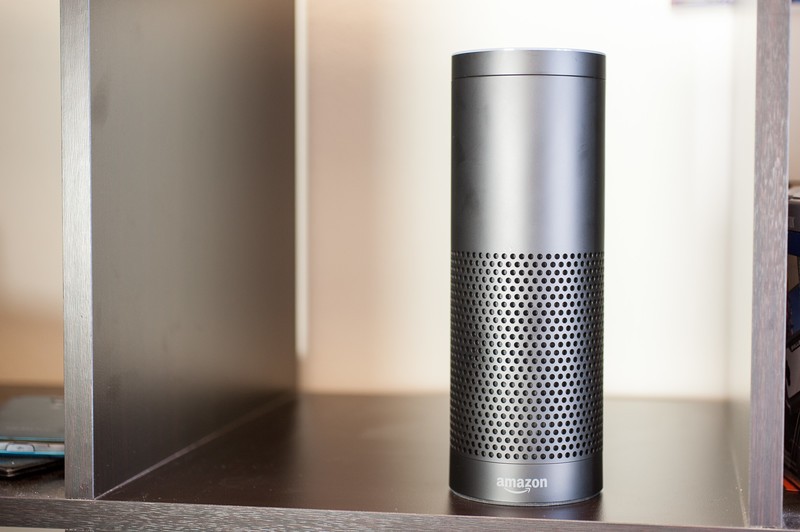
Amazon Echo setup
It's like setting up a talking Bluetooth speaker
There's not a whole lot to do in the way of setting up the Echo. You plug in the power cord (with its rather large wall wart) in through the base. You wait for it to turn on and start the setup process. You marvel at the pulsing orange light that's nearly identical to the orange pulsing light in the now-defunct Nexus Q sitting next to the Echo.
You following the soothing voice prompts from the speaker. You install the Android app and give the speaker your Wifi information. (Hey Amazon — Don't ever let a password field act like sentence case and automatically capitalize what's being typed.) You pop the included batteries into the optional (but included) remote control, identical to that of the Fire TV.
And then you set about to learn what all Alexa — that's the trigger name and what I've taken to calling the speaker instead of Echo — can do.
It did take me a couple tries to get the Wifi information to take. I'm not much of a networking wizard, so I don't know if that was something weird on my end — I've got a ton of devices hooked up in a small office — or on the speaker's. I just held down the action button for the prescribed five seconds and tried the process again, and it finally took.
You also can use Echo as a traditional Bluetooth speaker. Say "Alexa, pair phone," and she'll start the connection process and tell you where to go on your phone, should you not already know. Alexa announces once you're paired up, and the speaker's now serving as a traditional Bluetooth device. That's important because there's no line-in available, and Echo's limited to just Amazon (natch) TuneIn and I Heart Radio for music at the time of this writing.
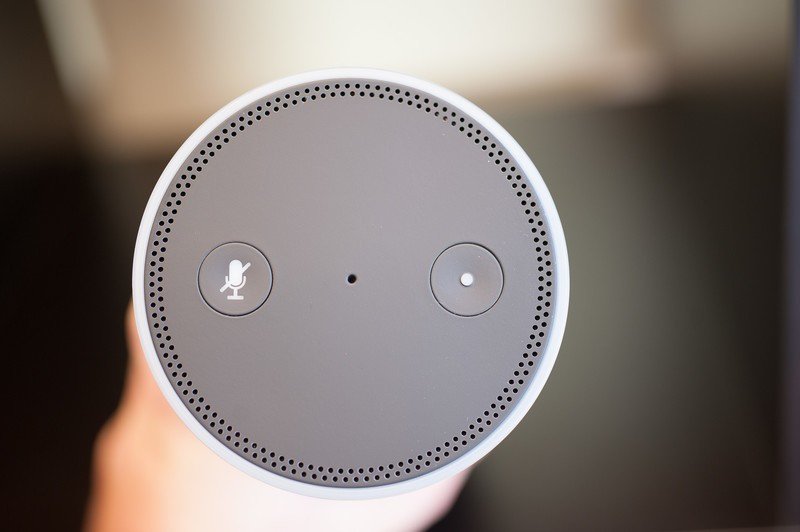
Using Amazon Echo
Hello, Alexa. I SAID HELLO, ALEXA!
I warned the folks in the offices near mine — I'd be talking to a strange woman a bit. (We have thin walls.) Having met my darling wife, they came running to see just who it was who could possibly be worthy of so much daytime attention. It's tough to say if their reaction would have been more or less surprising if I'd actually presented them with a human being rather than a small, connected speaker that answers to "Alexa." (It'll also answer to "Amazon," if you prefer. But that sort of turns it from a pseudo-personal interaction back to dealing with tech.)
I've used Echo — which I really want to just call "Alexa," but that sort of starts to get weird — in my office as well as at home. The former is understandably more quiet than the latter, and I was able to to trigger the "Alexa" hotword by speaking normally, if not a little quietly.
The Amazon Echo apps are exactly the same on iOS and Android — but chances are you won't need them much anyway.
Probably what's most impressive about Echo is the latency. Or, rather, the lack thereof. The time it takes for you to speak a command, and then for the speaker to acknowledge and execute the command is next to nil and very impressive. That's alway been my chief complaint about using Google Now on a phone or tablet — even when on a device like the Moto X, which, like Echo, is always listening for that hotword. It just takes too long for it to do its thing. (Using voice activation with Google on a desktop browser is a much different experience.)
And I'd argue that Echo is maybe even a little faster and more fun to use that Apple's Siri as well. You don't yet get the same depth of answers, but then again Echo isn't anywhere near as commercialized as the iPhone or Android. It's still (at least in my mind) a more conversational thing. Even more so than with Siri, which leaves a little more room for nuance.
Or maybe it's just that I'm not talking to the phone in my hand. (Never mind the operating system.) I'm just talking. Echo's seven microphone's generally do a good job of hearing me from across the room, even while music's playing. Occasionally it would pick up the hotword but not the command. I wanted to blame myself. Not Alexa. That may be a bit of male chauvinism showing, not wanting to blame this female voice I've been trying to get to understand me.
So say "Alexa, pause," and the music is paused nearly immediately. Say "Alexa, turn it up," and the volume increases nearly immediately. Say "Alexa, give me the headlines" and you'll get your briefing based on NPR and the BBC. You really do feel like you're interacting with the speaker instead of just barking commands at it.
Voice has its limitations, though. I can easily tell Echo to turn the volume up or down, but that just feels a little more arbitrary. At the same time, I can tell Echo to set the volume to a specific volume between 1 and 10. But that means I have to know what it's set to already.
So while voice activation the Echo is really good, it only goes so far in some instances. To that end there's the included remote control (exactly like the one that comes with Fire TV), which lets you adjust the volume or skip tracks or keep from shouting across the room to trigger Echo.
So how's it sound? In just a couple words, not bad. I use Sonos at home. And while Echo is crisp and clear and has a decently defined low end at low volumes, you very quickly realize its limitations as you crank up the music. Echo starts to lose what depth it has as the volume increases, and you very quickly reminded that this isn't the sort of speaker that's going to fill a whole room. It's about what I'd expect from a $200 speaker. But no more.
And then, of course, there's the Amazon Echo app, which isn't horrible. The experience is identical on iOS and Android — there's absolutely no advantage to one platform over the other here, which is exactly what you want to see when using an accessory like this. You'll use the app to set up Echo, and sometimes to search if Echo just can't understand what you're saying. (It had a hard time with "iMore show," for example.) And you'll need the app if you want to manage your shopping list. Probably the most important part of the app, though, is the "Things to try" list, which is a lifesaver for figuring out what all Echo can do.
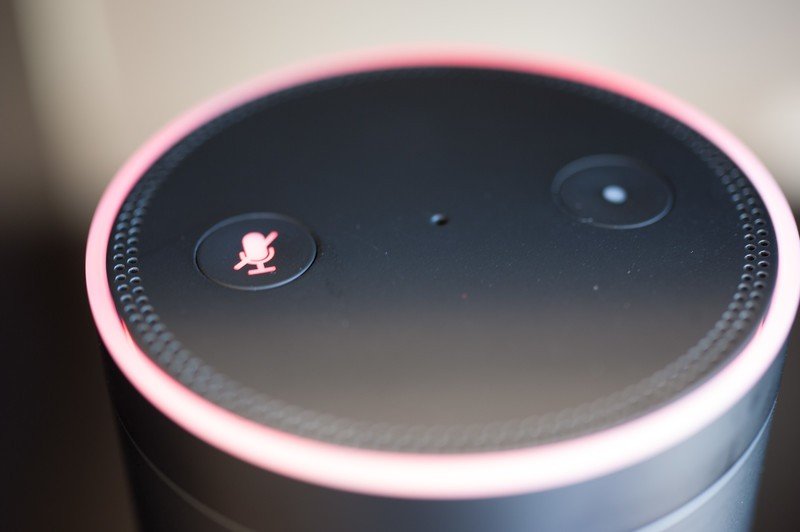
Amazon Echo: The Bottom Line
Amazon's done a lot of good things here
My kids want to know what happened to Alexa. Where did she go? When will she be back? Not, "Dad, where's that speaker you talk to?" It's "Where's Alexa, Dad?"
Echo as a service is pretty good out of the gate, and Alexa (the disembodied voice) is just short of lovely.
Welcome to the Siri Generation, perhaps. I use Android devices, which lack that sort of personification. You feel like you're talking to Google, not to a person. My wife, however, talks to Siri all the time, with that sort of voice a mother likes to use from time to time. So I took away my daughters' new digital friend who'd play Taylor Swift over and over again without judgment. Who'd attempt to answer the most inane questions from a couple of half-pints who continue to marvel me with non sequiturs. But, alas. Alexa — Amazon Echo, excuse me — isn't quite right for me. I've made my bed in the land of another, more mature, more stylish — and, yes, much more expensive — connected speaker ecosystem.
That's not to say there's not a lot to like about Echo. It's not Sonos, but then again it's not supposed to be. At its core what you have in Echo is a really good Bluetooth speaker, much more akin to what you get from, say, Supertooth, which served me very well for a number of years. Sure, you can expose Alexa's — erm, Echo's — limited knowledge base fairly quickly. Smart devices are great until they're no longer smart.
Where Amazon really needs to be commended is in tying the whole product together. It's easy to slip into a near-casual conversation. You're not so much talking at Echo, you're talking to Alexa. (One has to wonder how the experience might have been had Apple and Google not paved the way first, though.) The services Amazon has brought together work really well — it just needs more of them. And while wireless is the way of the future, a 3.5mm jack would have provided a nice backup option, legacy as it may be.
For me? Echo and Alexa are a fun pair with a good bit to offer, and the potential for a good bit more, if you're in the market for a Bluetooth speaker.
